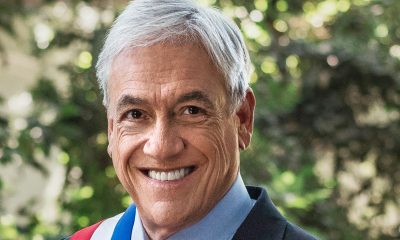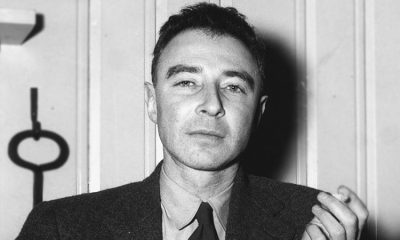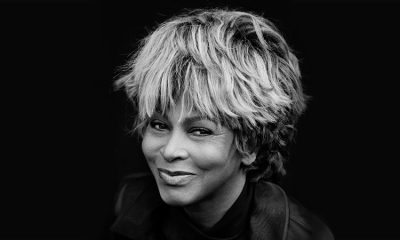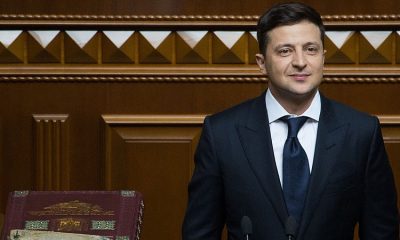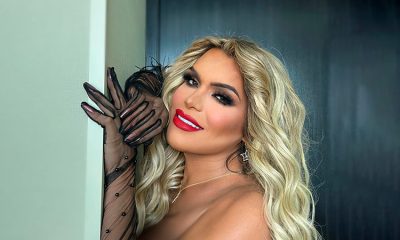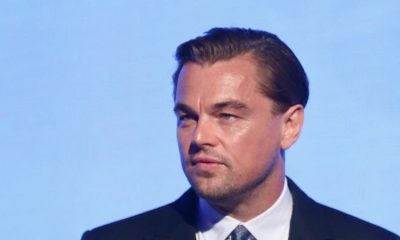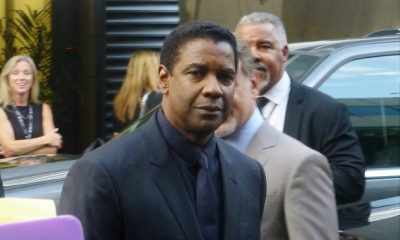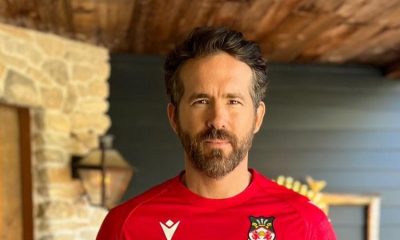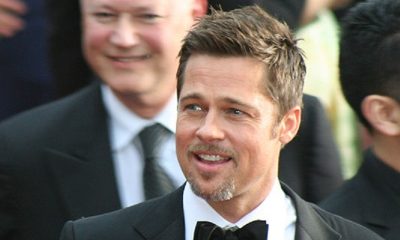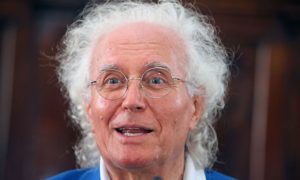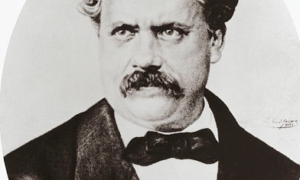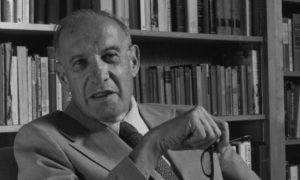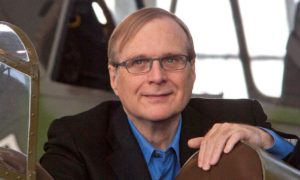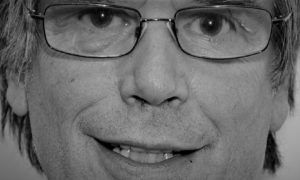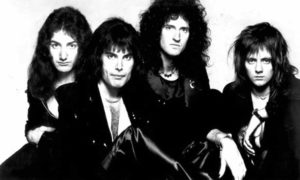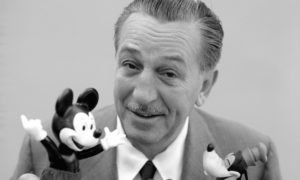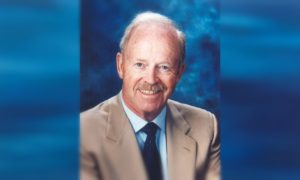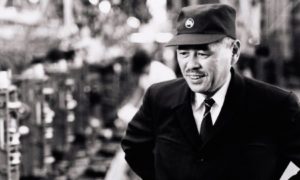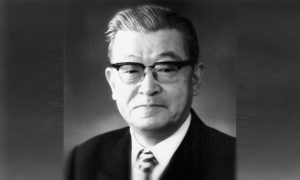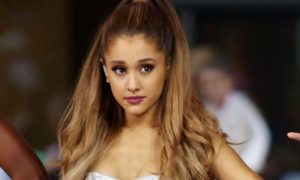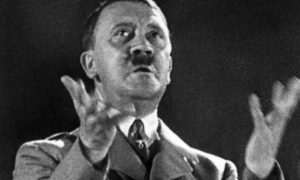Politicians
Grover Cleveland
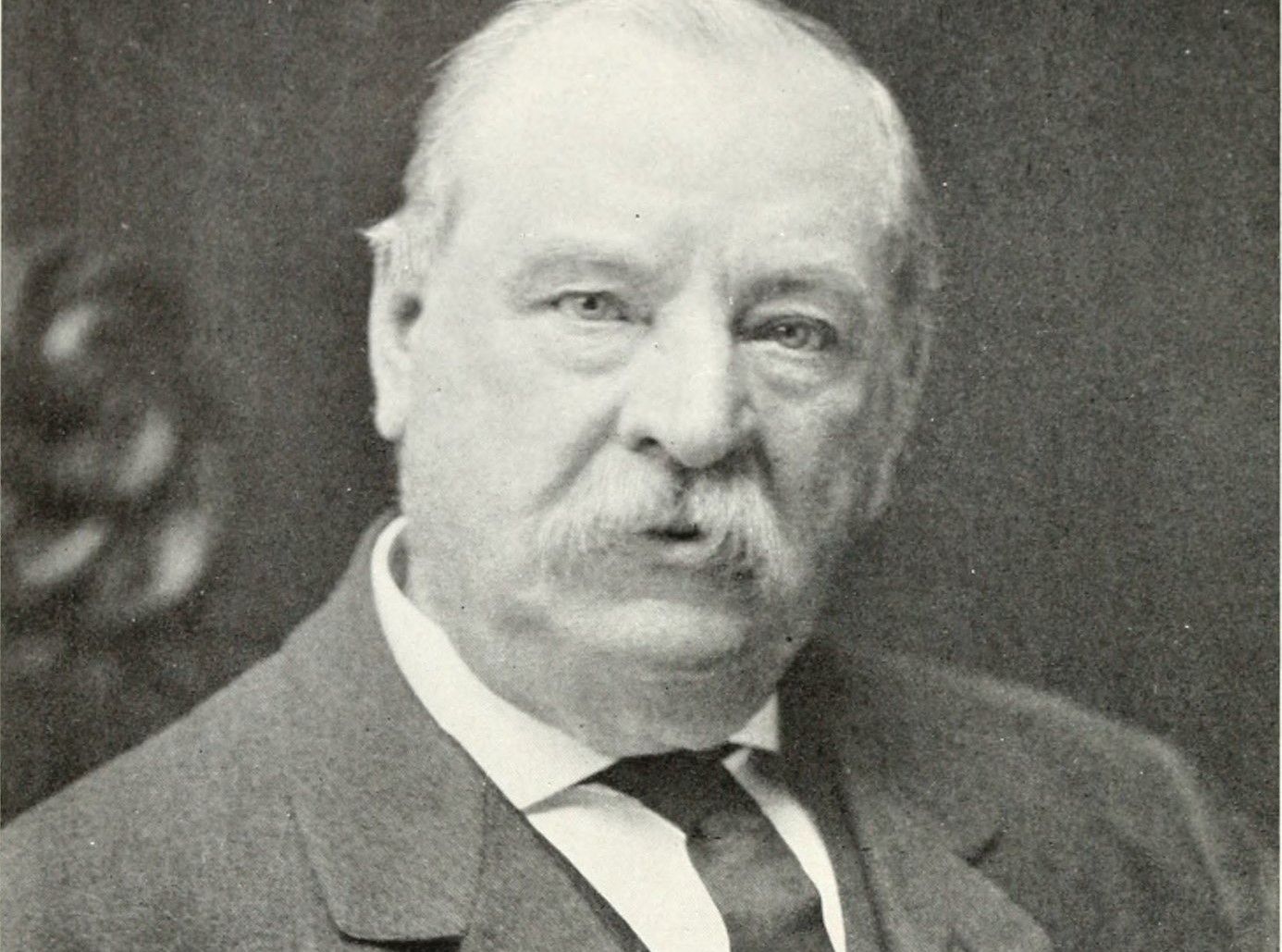
Grover Cleveland Biography
Stephen Grover Cleveland (March 18, 1837 – June 24, 1908) He was born in Caldwell, New Jersey, United States. Lawyer and American politician elected as president of the United States of America on two non-consecutive occasions (1885-1889; 1893-1897). He studied law in the 1850s. He began his career as an alternate prosecutor for Erie County (1863) and was later elected Mayor of Buffalo (1881). With liberal and progressive ideas, he earned the respect and appreciation of the electors and the Democratic party, which chose him as a candidate for the presidency in 1884. His mandates were characterized by the search for economic stability and the use of the Doctrine Monroe concerning international politics.
FAMILY AND STUDIES
Born into a Protestant family, Cleveland was the fifth son of Presbyterian Minister Richard Cleveland and his wife Anne Neal. Due to his father’s work as a pastor, he had to move on several occasions during his childhood. He lived and studied elementary and primary school in Fayetteville and Clinton, New York. After the death of his father in 1853, he moved to Buffalo (New York), where he began working as an administrator in a law firm, thanks to his uncle’s advice. Interested in the world of law and jurisprudence, he quit his job to study law in the course of the 1850s, graduating in 1858.
THE BEGINNING
At the end of the 1850s, he began to practice his profession in New York, gradually gaining recognition. For his talent and good work, he was appointed Deputy Prosecutor of Erie County (New York) in 1863 and seven years after Sheriff of Erie County (1870). While serving as chief of police, Cleveland became known for his fight against corruption in the institution and municipal policy. He introduced a series of reforms and abolished the usual corrupt practices in county policy. His outstanding work in the police led the Democrats to see him as the ideal candidate for mayor of Buffalo, a position he held between 1881 and 1882. From that moment he began his vertiginous rise in US politics.
POLITICAL CAREER
He began his political career in the 1880s, serving as mayor of Buffalo (1881-1882), with the support of the Democratic Party. During his administration, Cleveland reorganized all the dependencies that were in his charge, ending once and for all with corruption and the system of privileges with political positions that had been taken by the municipality’s policy. He monitored how political representatives were chosen and applied a program of budget cuts, which allowed him to eliminate superfluous expenses and direct money to more important projects, gradually cleaning up the situation in which the municipal coffers were located.
His successful administration led to him being chosen as the Democratic candidate for the elections to the governor of New York in 1882, a political contest in which he faced Republican candidate Charles J. Folger, Secretary of the Treasury of President Chester Alan Arthur. At the end of the voting, Cleveland was elected Governor of New York with a wide margin of votes. He held this position between 1883 and 1885, with his characteristic honesty and rectitude, seeking to reduce the high rates of corruption of the State.
The reforms he proposed led him to confront various Republican politicians and the Democratic political organization Tammany Hall, which was known in the State for choosing the candidates and figures that would control the political scene in New York. Although he faced the great figures of his party, he was chosen as a presidential candidate in the National Convention of the Democrats of 1884.
During his campaign he learned to take advantage of the internal problems that the Republican Party was going through, gaining the support of the independent and reformist Republicans, who were against the candidate chosen by the party, James G. Blaine. Thanks to the support of the Democrats and the group of Republican dissidents, Cleveland was elected president of the United States of America in 1884, with a margin of 23,000 votes.
GOVERNMENT OF GROVER CLEVELAND (1885-1889 AND 1893-1897)
After accessing the position in March 1885, Cleveland initiated a series of political reforms aimed at ending the system of privileges and granting political positions among like-minded supporters, as was common at the time. Cleveland abolished several laws enacted in previous administrations, which limited the president’s actions in various matters, such as the dismissal of public officials without the consent of the Senate. Although he had to give in to his party’s pressure to elect his officials, Cleveland tried to keep his administration away from corruption linked to such practices.
During his government, he favored the growth of national companies and sought to keep the country away from protectionism. He avoided superfluous expenses and controlled the budget he invested in the various sectors of the country. He rejected several bills such as the Dependent Pension Law and the Interstate Commerce Act of 1887, which had the support of the Senate, the army and the country’s industries. His economical and rigid economic action cost him re-election, which is why he only ruled until 1889, as established. In 1886, he married Frances Folsom, a 28-year-old who became the youngest first lady in history.
After the failure in the elections of 1888, Cleveland dedicated himself to the legal profession until he was again launched as a candidate for the presidency in 1892 by the Democratic Party. He defeated candidates Benjamin Harrison and James B. Weaver by a narrow margin and took office as president in March 1893. In his second term, Cleveland had to face various problems linked to the economic depression that was going through the country, such as the bankruptcy of too many banks and the high unemployment rate. To stimulate the economy of the country, he revoked the Sherman Law on the purchase of silver, creating a great demand for gold from the Public Treasury, which was solved with the help of the New York banking consortium, ending the crisis in 1896.
By the end of his term, Cleveland had lost the support of the majority of his supporters and voters due to the problems he had with the workers and the violently repressed strikes by the authorities. These circumstances led to him losing in the National Convention of Democrats to William Jennings Bryan, who in turn lost the presidential elections to Republican candidate William McKinley. At the end of his term, Cleveland moved away from politics, to dedicate himself to lecturing in Princeton, between 1901 and 1908. This prominent American politician died on June 24, 1908, in Princeton, at age 71.

Politicians
Sebastián Piñera
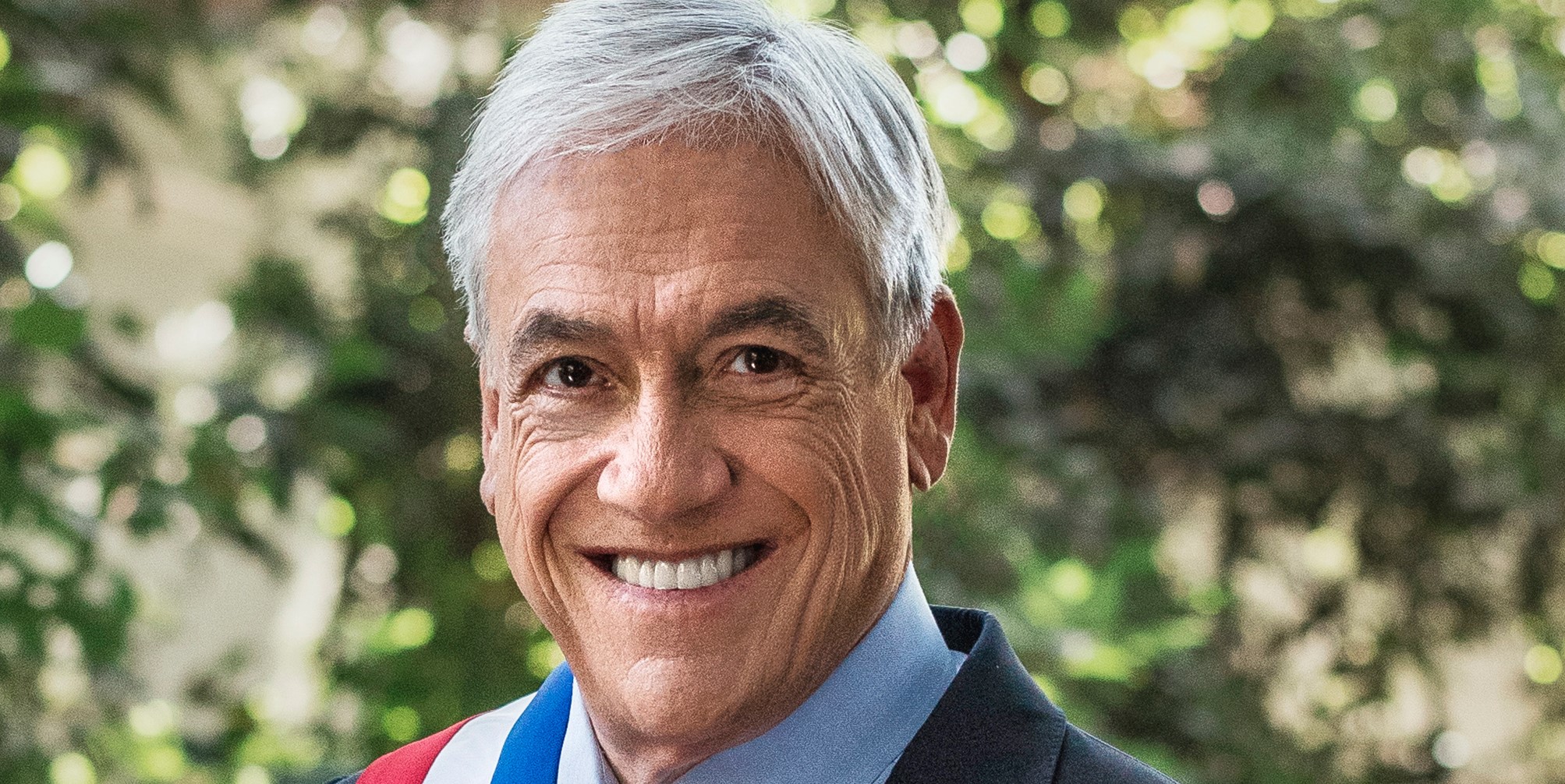
Sebastián Piñera Biography
Miguel Juan Sebastián Piñera Echenique (December 1, 1949 – February 6, 2024) was a politician, entrepreneur, and engineer, born in Santiago, Chile. He was renowned for serving as the President of Chile for two terms, from 2010 to 2014 and from 2018 to 2022.
Early years
Miguel Juan Sebastián Piñera Echenique, also known simply as Sebastián Piñera, was a Chilean politician, entrepreneur, and engineer hailing from an affluent family. He is the third child of the marriage between the politician José Piñera Carvallo, who served as Chile’s ambassador during the presidential term of Eduardo Frei Montalva, and Magdalena Echenique Rozas, a descendant of several notable political figures in Chilean history, including the patriot Juan Martínez de Rozas and President Francisco Antonio Pinto.
Following Sebastián’s birth, the family lived in Santiago for a year until José Piñera was appointed as the ambassador to Belgium, prompting them to move to Brussels. Later, the family relocated to New York due to José’s position in the Corporation for the Promotion of Production.
By 1955, the family returned to Santiago, where Sebastián Piñera enrolled in the Colegio del Verbo Divino, graduating in 1967. With this achievement, he pursued a degree in Business Engineering at the Pontifical Catholic University of Chile, graduating in 1971 as the top graduate of the Faculty of Economics. Two years later, he commenced his master’s and doctoral studies at Harvard University, obtaining both degrees in 1975.
Beginnings and Career
In his early years, Sebastián Piñera’s trajectory intertwined with a series of events that shaped the course of his career, from his initial steps as an economic advisor to his foray into politics. Shortly after receiving financial support from Richard Musgrave, who paid him fifty thousand dollars to advise on Bolivia’s national accounts, Piñera directed that capital to establish the construction company Toltén. This marked the beginning of a remarkable career that led him to serve as a consultant for the World Bank and the Inter-American Development Bank between 1974 and 1976. Subsequently, he held positions as an economist at the Economic Commission for Latin America (ECLAC) and as a professor of Economics at various universities, including the Pontifical Catholic University of Chile, the Adolfo Ibáñez University, and the University of Chile.
Despite his various commitments, Piñera never abandoned the real estate business, dedicating a significant portion of his fortune to this sector. However, he faced challenges, such as the attempt to establish a tourist development in Zapallar, which was resisted by the local community, and the controversial purchase of land in the Tantauco Park, denounced as encroachment by the Huilliche community.
In the banking sector, Piñera became involved with Banco de Talca in 1979, swiftly ascending to the position of general manager by 1980. However, in 1982, he found himself entangled in a fraud scandal alongside Emiliano Figueroa and the bank’s president, Carlos Massad. Despite the controversies and evading the law, the Supreme Court closed the case in 1982, giving rise to speculations about potential political pressures during that time.
Transitioning to his political career, Piñera initially served as the campaign manager for Hernán Büchi, the right-wing candidate, following the failed plebiscite for the reelection of Augusto Pinochet in 1988. Despite Büchi temporarily withdrawing from the campaign, Piñera continued his political journey by being elected as an independent senator in 1990. However, he faced obstacles in his presidential aspirations in 1993 due to controversies such as the Chispas Case and the Piñeragate.
In 2009, Piñera formed the Coalition for Change with Fernando Flores, securing the presidency with 51.61% in the runoff against Eduardo Frei. During his tenure, he faced challenges such as the 2010 earthquake, resulting tsunamis, territorial claims from Peru and Bolivia, and criticisms of his administration. Despite this, he managed to reduce unemployment, maintain strong foreign relations, and strengthen the economy.
After his term ended in May 2014, Sebastián Piñera founded the Avanza Chile Foundation in opposition to the Bachelet government. In March 2017, at an event held in Santiago’s Quinta Normal and attended by representatives of Renovación Nacional, the UDI, and the Regionalist Independent Party (PRI), Piñera launched his presidential candidacy for the 2018-2022 term.
For the primary elections on July 2 of that same year, Sebastián Piñera defeated Manuel José Ossandón and Felipe Kast, garnering a total of 828,397 votes, which amounted to 58.35% of the total valid votes. He was nominated as the presidential candidate for the Chile Vamos party. On November 19, 2017, during the presidential elections in Chile, Piñera secured 2,418,540 votes, representing 36.64% of the total valid votes. This allowed him to advance to the runoff alongside the candidate of the New Majority, Alejandro Guillier, who achieved 22.70% of the votes. Almost a month later, in the runoff election, Sebastián Piñera was elected President of Chile for the 2018-2022 term with 3,796,918 votes.
Personal life
Sebastián Piñera was married to Cecilia Morel Montes, and together they had four children: Magdalena, Cecilia, Sebastián, and Cristóbal. His family life played a significant role in his public image, and he emphasized the importance of family values in his life.
Death
On February 6, 2024, a tragic incident occurred while Sebastián Piñera, accompanied by his sister Magdalena, Ignacio Guerrero, and his son Bautista Guerrero, was en route to a lunch at José Cox’s residence in Ilihue, Lago Ranco commune. After the meeting, during the helicopter return, the aircraft experienced technical issues and crashed into Lake Ranco.
The accident took place 400 meters from José Cox’s house, who, upon learning of the incident, rushed to the scene on his boat, seeking to provide immediate assistance.
“You all jump first, because if I jump with you, the helicopter will come down on top of us all” – Last words of Sebastián Piñera.
Initial reports indicated the possibility of one fatality and three survivors. Subsequently, after the intervention of the carabineros in the rescue operation, the tragic news of the loss of the former Chilean president, Sebastián Piñera, was confirmed. His body was found without the seatbelt, at a depth of 28 meters, next to the crashed helicopter.
Following the autopsy, it was revealed that the cause of death was drowning. Upon the confirmation of his passing, President Gabriel Boric declared a national mourning period of three days.
Biography
Nancy Pelosi

Nancy Pelosi Biography
Nancy Patricia Pelosi (March 26, 1940) is an American politician and the first woman to be elected as Speaker of the House of Representatives in 2007. She studied political science at Trinity College in Washington, graduating in 1962. After getting married and having several children, she entered politics with the Democratic Party in the 1980s. She served on the National Democratic Committee and was President of the Democratic Party in California from 1981 to 1983. In 1987, she was elected as a Member of the United States House of Representatives and has been re-elected several times since then (1993, 2013…). During the second term of George W. Bush, she became the first woman to serve as Speaker of the House. In 2019, she was re-elected as Speaker of the United States House of Representatives.
Early years
Nancy Pelosi was born on March 26, 1940 in Baltimore, Maryland. She was the daughter of the Democratic politician Thomas D’Alesandro Jr. and Annunciata “Nancy” D’Alesandro, both of Italian descent. Her mother was born in Campobasso and her father was descended from Genoese. From an early age, she was involved in politics due to her father being a congressman for Maryland and later the mayor of Baltimore (between 1967 and 1971). She attended Notre Dame Institute and graduated with a degree in political science from Trinity College in 1962. The following year she married Paul Pelosi and moved to New York.
Six years later, with five children, the family moved to San Francisco. There, Pelosi made friends with Congressman Phillip Burton and began working to make her way in politics. As a volunteer for the Democratic Party, she gained a reputation as an effective fundraiser and rose through the ranks of the National Democratic Committee. Between 1981 and 1983, she was the President of the Democratic Party of California. In 1984, she hosted the National Democratic Convention in San Francisco.
Member of the House of Representatives for California
When Burton died in 1983, his wife Sala succeeded him and shortly before her death in 1987, she encouraged Pelosi to run for the position. Pelosi won by a narrow margin in the special election on June 2, 1987 and was re-elected for a full term the following year. Since then, she has easily won elections in her district with a Democratic majority. She has been re-elected sixteen times with an average of 80% of the votes.
In the House, over time, she developed a reputation as a shrewd politician and consistently rose within the party. In 2002, she became the minority leader. When she assumed the position in 2003, she became the first woman to lead a party in Congress. With great effort, she achieved some unity among the various factions of the party, embracing conservatives and moderates. However, she consistently voted in favor of liberal causes such as gun control and the right to abortion. She also opposed Bush’s Social Security reform and voted against the War in Iraq. She made strong criticisms of President W. Bush during his second term, even going so far as to call him an “incompetent leader,” which affected her career and kept her out of contact with much of the country.
Speaker of the House (2007-11)
In the November 2006 midterm elections, Democrats gained a majority in the House of Representatives. On January 4, 2007, Pelosi was elected Speaker of the House, becoming the first woman in the position (the first Californian and the first woman of Italian descent to do so). Following the arrival of Barack Obama as president, Pelosi openly supported many of his policies. She played a key role in the year-long effort to secure public health with a historic project that extended medical care to about thirty million Americans who previously did not have insurance. The project also prohibited insurers from denying coverage to people with preexisting conditions.
With the implementation of the project, her popularity decreased as the economy continued to struggle. In the period prior to the 2010 elections, Pelosi became the target of Republican attacks and also a point of disagreement for more conservative members of the Democrats, eager to turn the elections into a referendum on the party’s agenda. Despite all this, Pelosi was again elected minority leader in the next Congress. She remained in the position even when the Democrats failed to regain control of the House in the subsequent elections. In 2016, her position was threatened by Ohio’s Tim Ryan after the election of Donald Trump, but Pelosi prevailed. She held her position until January 2019.
Second term as Speaker of the House
In January 2019, Pelosi was again elected as Speaker, becoming the first person in over 60 years to serve two non-consecutive terms in the position. Her political skills were on display as she led the opposition against Trump, who had promised to keep the government closed until he received funding for the proposed border wall during his campaigns. Pelosi refused to allow Trump to deliver the annual State of the Union address while the government remained closed. At the end of January, Trump agreed to end the shutdown, though he failed to obtain the necessary funds. Pelosi received praise for her handling of the situation. Later, Pelosi led the impeachment trial against Trump on charges of Russian interference. The investigation concluded in early December 2019. In 2020, the Senate acquitted Trump.
Pelosi during the pandemic
In March 2020, after the coronavirus became a pandemic, Pelosi helped secure the approval of a $2 trillion aid package, the largest stimulus bill in US history. As the pandemic worsened in the country, Pelosi blamed President Trump for the poor handling and misinformation in addressing the pandemic.
Finally, in the 2020 elections, Trump was defeated by Democratic presidential candidate Joe Biden. In the elections, Democrats also maintained a small majority in the House. Therefore, Pelosi was elected for another term. During this time, Trump questioned the results of the presidential election, alleging electoral fraud. On January 6, 2021, his supporters stormed the Capitol while the victory of Biden was being certified. Many accused Trump of encouraging the attack and Pelosi demanded his impeachment. However, the Senate later acquitted him.
At the beginning of Biden’s term, Pelosi led the approval of a massive bill aimed at restoring and improving the infrastructure of the United States. She also supported the ambitious plan to expand the country’s social security network and laws to combat climate change.
Visit to Taiwan (2022)
Despite threats from the Chinese government, in August 2022, Pelosi became the highest-ranking US official to visit Taiwan in around 25 years. Pelosi’s controversial visit increased tensions between the US and China, which considers the island a rebel province of its territory. According to the Chinese government, the presence of a US official would provocatively increase international recognition of the Taiwan government.
End as Speaker of the US House of Representatives
Considered the most relevant and powerful woman in the history of American politics, she bid farewell to her leadership position on January 3, 2023, after Republican lawmakers gained a majority in the House after the 2022 mid-term elections.
Upon her departure, she stated:
“I am honored by the faith placed in me by the Democratic Caucus of the House, the largest collection of intellect, integrity, and imagination assembled for the good of the American people. I am grateful to the people of San Francisco whom I will continue to serve, striving to honor the call of our city’s patron saint, St. Francis: ‘Lord, make me an instrument of your peace.”
Politicians
Nayib Bukele
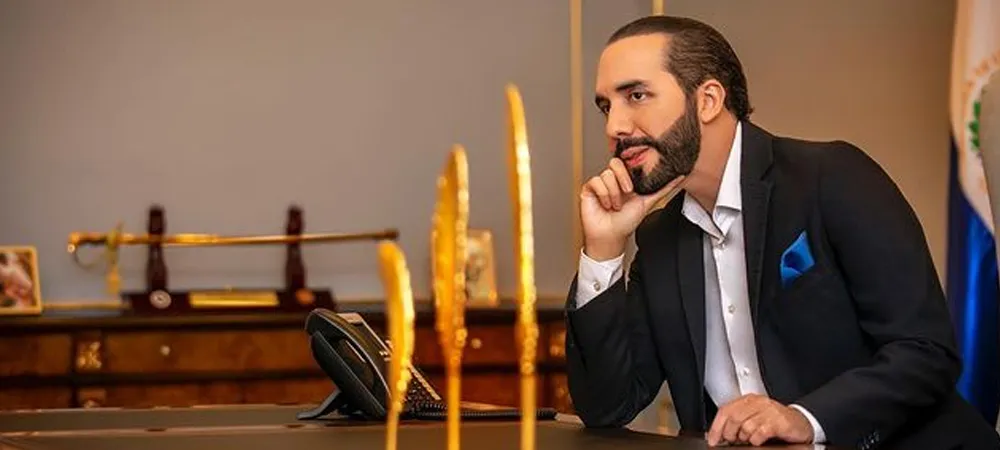
Biography of Nayib Bukele
Nayib Armando Bukele Ortez (born July 24, 1981) is a Salvadoran politician and businessman. He has been the President of El Salvador since June 2019. A former member of the FMLN, Bukele entered politics in 2012 as the elected mayor of Nuevo Cuscatlán. In 2015 he was elected mayor of San Salvador and in 2019 he became president. His meteoric rise has made him the youngest president in Salvadoran history. He has identified with millennials and generations influenced by social media. Before entering politics, he was a well-known businessman.
Beginnings
He was born in San Salvador in 1981. He is the son of chemical engineer and businessman Armando Bukele Kattán and Olga Ortez. His father is of Palestinian origin and he has a brother named Yamil. Bukele began his career as a businessman, working with his father from a young age. By the age of eighteen, he was already running a successful company. Later, he began studying law at the Central American University José Simeón Cañas; however, he did not graduate, as he decided to continue with the family business.
Bukele was the owner of one of the Yamaha distributors in El Salvador and the director of the advertising company Obermet, before entering politics as a member of the Farabundo Martí Front for National Liberation (FMLN). He had come into contact with the party from a young age, but it was not until 2011 that he offered himself as a candidate for the mayoralty of Nuevo Cuscatlán.
Political career of Nayib Bukele
Elected mayor of Nuevo Cuscatlán for the period between 2012 and 2015, Bukele quickly gained recognition for his left-wing ideas and his closeness to current generations. Just one month after the end of his administration, he was elected again, this time for the mayoralty of San Salvador. He successfully governed from May 1, 2015 to April 30, 2018.
During his administration, Bukele implemented several programs such as “One work per day” and the “Revitalization of the heart of the Historic Center.” He also carried out the construction of the Municipal Library of San Salvador and the creation of the Women’s and Culture Secretariat of the municipality.
On October 10, 2017, he was expelled from the FMLN. Since then, he has been one of the party’s most ardent critics. After his term ended, he began his campaign for the presidency with the Gran Alianza por la Unidad Nacional (GANA) party and with Félix Ulloa as his running mate.
Bukele: elected president
In the presidential elections of February 3, 2019, Bukele emerged as the winner with a total of 1,434,856 votes (53% of voters), against the ARENA candidate, Carlos Calleja. His victory ended more than thirty years of bipartisanship in government. On June 1 of that year, he assumed office.
Once in power, he broke relations with Venezuela, accepting interim President Juan Guaidó. Later, he would be criticized for promoting the entry of the armed forces into the Legislative Assembly, in response to the rejection of a bill that sought to increase funds for the police and the armed forces.
In April 2020, he again caught the attention of the country and the international community by ordering a lockdown of prisons that had gang members. This followed a wave of violence that left 77 dead. The measure was not only unpopular due to the crisis facing the world due to Covid-19, but also because it violated the fundamental rights of prisoners. In addition, differences between the gangs imprisoned in the same place were overlooked. The situation could have gotten out of proportion.
For this reason, many critics have spoken out against his government. His authoritarianism and excessive use of the armed forces have worried all sectors of the country and the international community.
Nayib Bukele and Bitcoin
Nayib Bukele, the President of El Salvador, made the historic decision to accept Bitcoin as a legal currency in the country in June 2021. This measure was seen by many as a way to combat inflation and strengthen the country’s economy. Bukele also announced plans to build a solar energy plant to mine Bitcoin and use the digital currency as a way to boost tourism and investment in the country. While this decision has been controversial and has raised concerns about the volatility and security of Bitcoin, Bukele has expressed confidence that this measure will have a positive impact on the Salvadoran economy in the long run.
Personal life
Nayib Bukele is married to Gabriela Rodríguez, and in 2019, their daughter Layla was born. Bukele is known for his strong connection to young people and has often spoken about the importance of family and parenting. In addition to his political and business pursuits, he has made time for his personal life and has been open about the challenges and joys of raising a child.
Politicians
Joe Biden

Biography of Joe Biden
Joseph Robinette Biden Jr. (born November 20, 1942) is an American politician who served as the 47th vice president during the administration of President Barack Obama from 2009 to 2017. Prior to this, he was a senator from Delaware from 1973 to 2009. Currently, Joe Biden is the 46th President of the United States as a member of the Democratic Party. Biden played a significant role in the passage of the Violent Crime Control and Law Enforcement Act, also known as the Biden Crime Law.
Beginnins

A young Beau, Ashley, and Hunter Biden
Biden was born in Scranton, Pennsylvania. He is the oldest of four siblings born to Joseph R. Biden Sr., a car salesmanperson, and Catherine Eugenia Finnegan. He spent his early years in the suburbs of New Castle County and suffered from bullying due to his stutter. He attended Archmere Academy, in Claymont, graduating in 1961. After completing high school, he studied history and political science at the University of Delaware. He later pursued legal studies at Syracuse University School of Law, and in 1969, he began working as a lawyer in Wilmington, Delaware.
Joe Biden and Politics
As a member of the Democratic Party, Biden began his political career in the early 1970s. He was a member of the New Castle County Council (1970-1972) and in 1972 he ran for the Senate, being elected. That is how he arrived in Washington D.C. at the age of 29 as a senator for Delaware, becoming the fifth youngest senator in the history of the United States. For his outstanding work, he was reelected on five consecutive occasions: 1978, 1984, 1990, 1996 and 2002. He held the position until 2009, and was also the President of the Senate Judiciary Committee, between 1987 and 1995.
Biden played a significant role in the passage of the Violent Crime Control and Law Enforcement Act, also known as the Biden Crime Law, and was the author of the Violence Against Women Act in 1994. In addition, he chaired the Senate Committee on Foreign Relations from 2001 to 2003 and again in 2007 when the Democrats regained control of the Senate.
During the conflict in the Balkans, he made several trips to the region and his opinion was decisive for President Clinton to decide to use military force against Serbian President Slobodan Milosevic. Biden supported the policies of George W. Bush in Afghanistan after the September 11 attacks and voted in favor of the resolution authorizing the use of force in Iraq in 2002.
Candidacies and Vice Presidency
In 1987, Biden ran for the first time as a candidate for the presidency of the United States, relying on his popularity within the progressive group. However, he had to leave the campaign for health reasons. Biden was hospitalized in February 1988 due to two aneurysms; prior to this, he had been accused of plagiarism in an electoral speech.
His second campaign came in 2007, although he soon decided to withdraw due to the low probability he had in the polls. Shortly thereafter, he joined Barack Obama as a running mate and faced McCain and Sarah Palin in the presidential elections on November 4, 2008, in which the first African-American president of the United States was elected.
On January 20, 2009, he swore in as vice president of the United States. Throughout his term, Biden supported several measures and initiatives in favor of the working middle class, such as facilitating access to university, improving the quality of life through a sustainable economy, the law for recovery and reinvestment in the US industry and the protection of retirees’ pensions. However, he was moderate on issues such as gay marriage, the death penalty and abortion.
Biden was linked through the Wikileaks scandal to the policies of torture and indiscriminate killings in conflicts with Iraq and Afghanistan during the administration of George W. Bush. However, he denied all the accusations and claimed that as president of the Senate Committee on Foreign Relations, he requested that the use of force and related cases be monitored.
To the Presidency in 2020
After announcing his intention to run as a candidate for the presidency in 2019, Biden became the official candidate for the Democrats in August 2020. He chose Kamala Harris as his running mate, the first African-American and Asian-American senator in the United States. In the last months of the campaign, he fiercely faced off against President Donald Trump, winning the support of young people, the African-American community, and immigrants. Joe Biden won the 2020 United States presidential election and became the 46th President of the United States on January 20, 2021.
Joe Biden’s Personal Life
In 1966, he married Neilia Hunter, with whom he had three children: Joseph (Beau), Robert and Naomi. His wife and daughter Naomi died in a tragic accident caused by a drunk driver shortly after he was elected senator in 1972. In 1977, he married Jill Tracy Jacobs, with whom he had his daughter Ashley. His son Beau (Joseph) died in 2015, after years of fighting cancer.
Politicians
Volodimir Zelenski
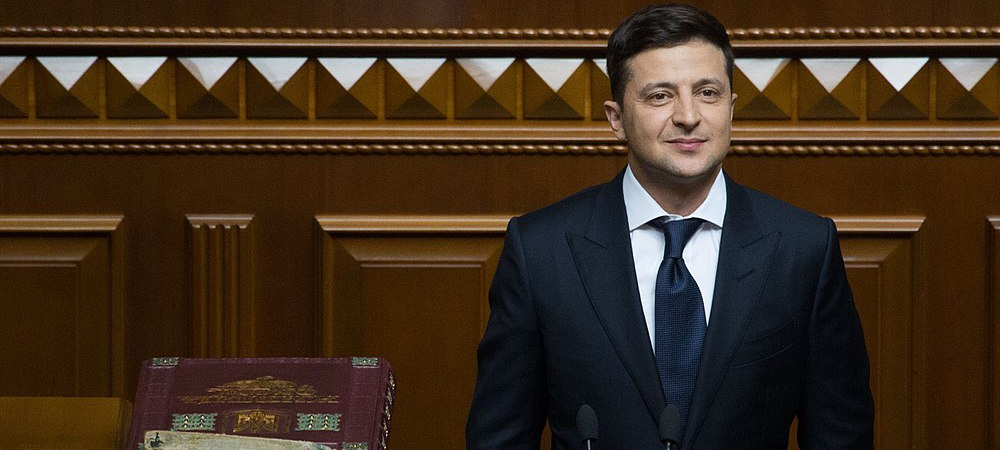
Volodimir Zelenski biography
Volodímir Oleksándrovich Zelenski (born January 25, 1978) is a Ukrainian actor, comedian, and politician. President of Ukraine. Zelenski is the son of Jewish parents and studied law, but his career eventually turned toward the arts. In university, he began acting in theater, and after graduating in 2003, he became one of the founders of Studio Kvartal 95, a production company derived from the theater group of which he was a member. From 2012 to 2015, Zelenski appeared in several feature films, and his fame exploded with the release of Servant of the People (2015), in which he played a teacher turned president. The movie became reality in 2019 when Zelenski succeeded Petró Poroshenko as President of Ukraine.
Early years.
Volodímir Zelensky was born in 1978 in Kryvyy Rih, a industrial city in southern Ukraine. As a child, his family moved to Erdenet, Mongolia for four years before returning to Kryvyy Rih. Zelensky attended school in this city and spoke Russian as a native language, but also became fluent in Ukrainian and English. In 1995, he began studying law at the National Economic University of Kiev at the local Kryvyy Rih Economic Institute campus. He graduated in 2000.
Career as an actor and comedian.
Although he was licensed to practice law, Zelenski chose a different path for his career. While still a student, he had become active in theater, which would become his primary focus. In 1997, his acting group, Kvartal 95, gained recognition by appearing in the televised finals of KVN, a popular improvisational comedy competition broadcast throughout the Commonwealth of Independent States. From then on, Zelensky and Kvartal 95 became regulars on KVN, appearing on the show until 2003. That same year, Zelensky co-founded Studio Kvartal 95, a production company that would become one of the most prolific and successful entertainment studios in Ukraine.
Zelensky served as the studio’s artistic director from its inception until 2011, when he was appointed general producer of the Inter TV channel. Zelensky left Inter TV in 2012, but continued acting. From 2012 to 2015, he appeared in several feature films, including the historical farce Rzhevskiy vs. Napoleon (2012), as well as the comedies 8 First Dates (2012), Love in Vegas (2014), and 8 New Dates (2015)
Servant of the People (2015) and the path to the presidency.
In 2013, Zelensky returned to Kvartal 95 as artistic director, but his career in entertainment soon intersected with the seismic events that shook Ukrainian politics. In February 2014, then-President of Ukraine Viktor Yanukovych was overthrown after months of protests, after which he fled to Russia. Three months later Petro Poroshenko was elected as President of Ukraine. With a tumultuous political situation (following Russia’s annexation of Crimea) and endemic corruption, Poroshenko struggled to pass modest reforms. It was in this context that Servant of the People premiered in October 2015. Zelensky starred in the film as Vasiliy Goloborodko, a history teacher who becomes an Internet phenomenon after being recorded by a student giving a passionate and profanity-laden speech against official corruption. The video paved the way for Goloborodko to become President of Ukraine, and the film provided a kind of roadmap for Zelensky’s political aspirations. Anticipating this, in 2018 Kvartal 95 officially registered Servant of the People as a political party in Ukraine.
Ukrainian presidential election.
With the Ukrainian economy stalled, a war on the horizon, and Poroshenko’s approval rating hovering around single digits, Zelensky emerged as one of the leading candidates for the Ukrainian presidency in the 2019 Ukrainian presidential election. However, his candidacy was threatened by his association with 1+1 Media owner Ihor Kolomoisky. His distancing from the businessman paid off. On March 31, 2019, Zelensky received over 30% of the vote in the first round, compared to Poroshenko’s 16%. Later, in April, he faced off against Poroshenko and Russian President Vladimir Putin at the Olympic Stadium in Kiev. The Russian President failed to land any significant blows against Zelensky.
Ukrainian presidency
On April 21, 2019, Zelensky was elected President of Ukraine with 73% of the vote. Upon being elected, Zelensky quickly faced his first foreign policy challenge when Putin announced his decision to offer Russian passports to Ukrainian citizens in the separatist-controlled areas. The Russia-backed war on the border was entering its fifth year, with hundreds of thousands of Ukrainians displaced. Zelensky mocked the offer and responded with a Facebook post extending Ukrainian citizenship to Russians and others “suffering from authoritarian or corrupt regimes.”
As Zelensky worked to build his new administration, ties with his former business partner came back under scrutiny. Kolomoisky had provided a valuable platform for Zelensky during the presidential campaign, though Zelensky promised not to grant him any special favors.
In September 2019, Zelensky found another problem in his administration when an informant in the US intelligence community filed a formal complaint about the actions of then-US President Donald Trump, regarding the alleged withholding of a significant package of military aid to Ukraine. In return for not investigating the alleged wrongdoing involving now-President Joe Biden and his son with Ukrainian politics.
Since tensions between Ukraine and Russia escalated in 2021, the US president has lent his full support to his Ukrainian counterpart.
